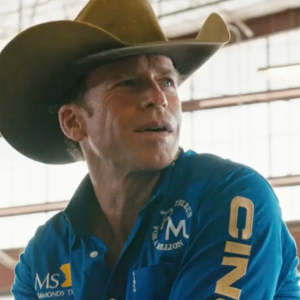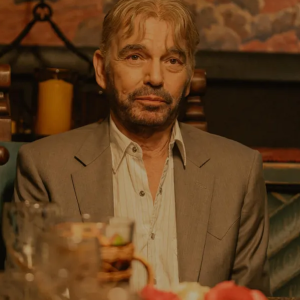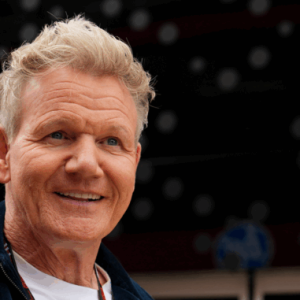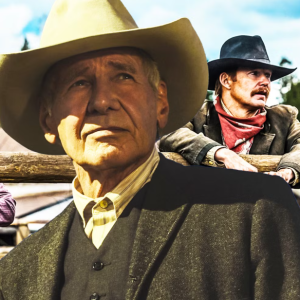In the competitive landscape of Hollywood accolades, where critical acclaim often culminates in prestigious awards, some narratives emerge as undeniable forces, yet remain conspicuously uncelebrated by the industry’s highest honors. Such is the case with Taylor Sheridan’s “1923,” a sprawling saga set within the beloved Yellowstone universe, which, despite its epic scope and profound emotional depth, garnered a surprising silence from the Emmy Awards. This perceived oversight did not, however, escape the notice of its passionate fanbase and industry peers. Notably, “Outlander” star Tony Curran recently shattered that silence, delivering a passionate and unapologetic critique of the Emmy committee’s decision, igniting a fervent discussion among viewers and critics alike.
Curran’s vocal defense of “1923” was far more than a casual compliment; it was a bold stance against what he, and millions of fans, perceived as a blatant misjudgment of one of the year’s most ambitious and emotionally resonant dramas. As a seasoned actor known for his talent and candor, Curran’s intervention transcended mere fan reaction, elevating the discussion to a significant cultural moment. His words echoed a widely held sentiment: “1923” was not simply another chapter in the Yellowstone narrative; it was a cinematic triumph, marked by sprawling narratives, deeply human characters, and a collection of unforgettable performances that somehow failed to translate into a single Emmy nomination. Curran’s statements ultimately challenged the very system that, in his view, often prioritizes politically palatable narratives over gritty, real, and daring storytelling—precisely the qualities that define “1923.”
To understand the weight of this perceived snub, one must first examine the inherent excellence of “1923.” Taylor Sheridan, the visionary behind the Yellowstone franchise, crafted “1923” not as a mere television series, but as an expansive cinematic experience, with each episode unfolding like a feature-length film. The series meticulously weaves together the brutal realities of Montana’s frontier life with the equally harsh colonial landscapes of Africa, creating a narrative tapestry rich in historical detail and emotional complexity. The production quality throughout was staggering, showcasing majestic landscapes, viscerally bone-chilling battle sequences, and character arcs fraught with deep emotional resonance. It transcended conventional television; it was, in essence, art.
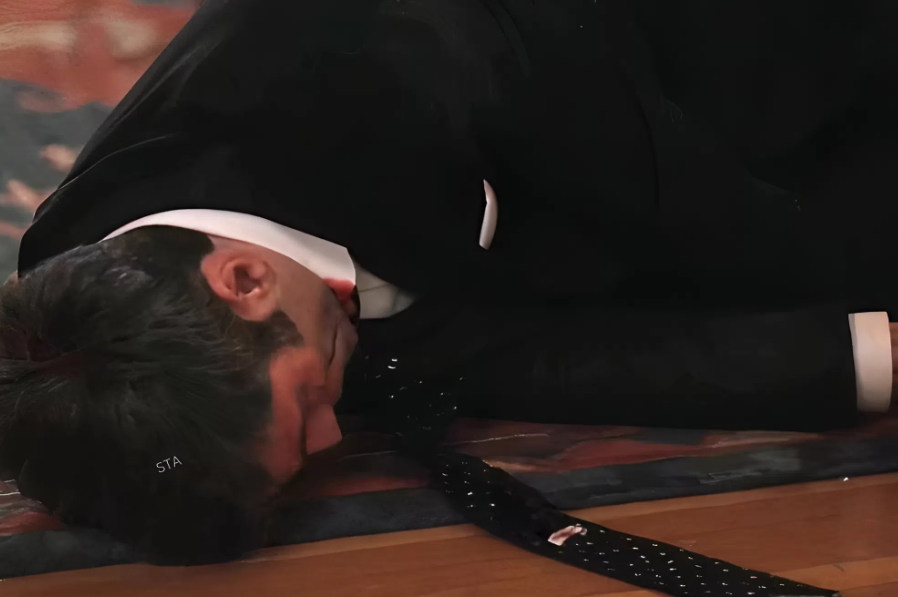
At the heart of “1923” lay a cast whose performances were nothing short of a masterclass. Harrison Ford and Helen Mirren, as the formidable Jacob and Cara Dutton, delivered career-defining portrayals that imbued their characters with astonishing emotional depth and gravitas. Mirren’s Cara was a study in fierce maternal strength, embodying both unwavering warmth and steely resolve, navigating a world intent on crushing her family’s spirit. Ford’s Jacob was a man weary, weathered, and haunted by the weight of his legacy, caught in a perpetual struggle to protect his land and family against relentless external and internal threats. Their chemistry and individual performances were consistently lauded, making their collective omission from the Emmy nominations particularly perplexing.
Beyond the iconic leads, the supporting cast delivered equally powerful and nuanced performances. Brandon Sklenar portrayed Spencer Dutton’s tortured journey with a captivating intensity, navigating profound trauma and a desperate search for purpose across continents. Julia Schlaepfer’s Alexandra was both vulnerable and defiantly resilient, offering a compelling counterpoint to Spencer’s stoicism. Perhaps most hauntingly impactful was Aminah Nieves’ portrayal of Teonna Rainwater, whose harrowing experiences in an Indigenous boarding school formed one of the series’ most difficult, yet crucial, storylines. The collective ensemble was not merely competent; it was arguably one of the strongest and most cohesive of the year, each actor contributing to the rich, layered tapestry of the Dutton family’s arduous journey.
So, why was a series of such demonstrable quality, boasting powerhouse performances and unparalleled production value, seemingly left out in the cold by the Emmys? The answer, as many hypothesize, might lie in the very uncomfortable truths “1923” dared to confront. Taylor Sheridan’s narrative did not sugarcoat history. Instead, it unsparingly tackled themes of colonialism, generational trauma, systemic abuse, and the brutal cost of survival in an era where hope was often a distant luxury. From its unflinching depiction of Indigenous boarding school atrocities to the stark violence and profound sacrifices demanded by frontier life, the show made no attempt to romanticize the past. It was, by design, unsettling and raw—a narrative choice that, while deeply impactful for audiences, may have been too challenging for an awards circuit often inclined towards more palatable, less confrontational storytelling.
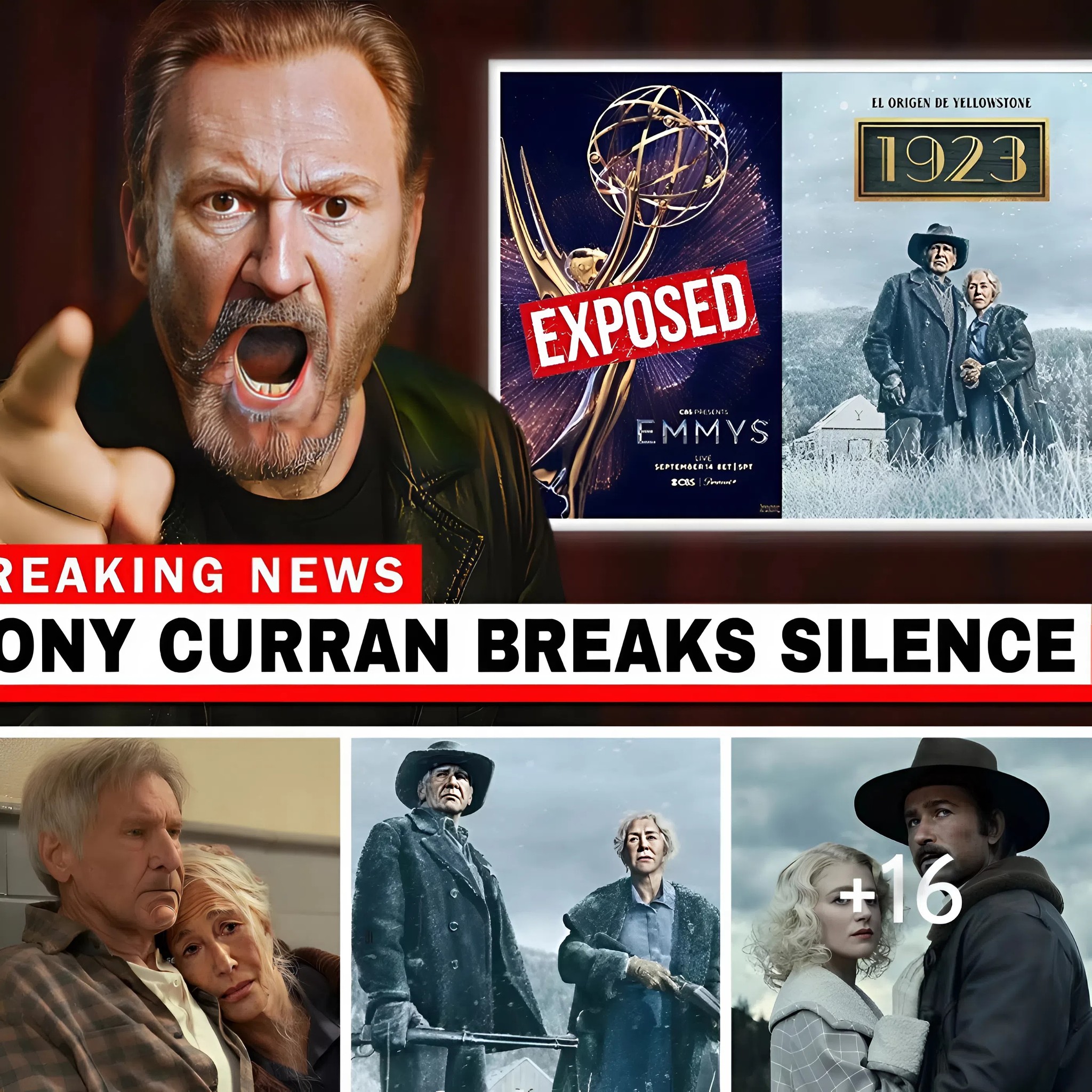
In stark contrast to the often polished and safer prestige dramas that frequently dominate Emmy nominations, “1923” embraced a realism that was, at times, difficult to watch. Sheridan’s priority was not to create something easily digestible for broad appeal or award consideration, but to craft a narrative steeped in authenticity and truth, even if that truth was painful. This commitment to unvarnished reality, particularly the kind that exposes historical injustices and human suffering without compromise, often struggles to translate into conventional award recognition.
Curran’s criticism thus highlights a broader, perennial issue within Hollywood: the influence of gatekeeping and industry politics on recognition. In a system where strategic public relations and aggressive lobbying can sometimes appear as crucial as artistic merit, “1923” may have simply refused to conform. Taylor Sheridan is renowned for letting his work speak for itself, eschewing the traditional methods of courting industry approval. This fierce independence, while potentially costing him a trophy, has arguably earned him something far more enduring: an unshakeable connection with a fiercely loyal audience.
For its viewers, the enduring power of “1923” did not stem from flashy plot twists or overtly dramatized monologues. It resonated through its profound emotional honesty—its willingness to immerse audiences in the mud, the blood, and the heartbreaking realities of a forgotten, brutal era. This deeply personal connection ensured the series lingered long after the credits rolled, which is precisely why the Emmy snub feels so deeply personal to its supporters. It suggests that the industry, perhaps inadvertently, overlooked a profound and brilliant piece of storytelling that challenged conventions and stirred the collective conscience.

The involvement of Harrison Ford and Helen Mirren alone, two titans of film, should have commanded the industry’s immediate attention. Their commitment to “1923” was not superficial; they delivered transformative performances that rivaled, and perhaps even surpassed, some of their best work on the silver screen. If even their combined powerhouse portrayals could not secure “1923” a foothold in the Emmy conversation, it prompts a legitimate question about the Academy’s criteria and discernment.
Yet, perhaps the true victory for “1923” is not a golden statuette, but an indelible legacy. Tony Curran’s viral defense has undeniably reignited crucial conversations around the show. Fans are re-engaging, critics are revisiting its themes, and Sheridan’s bold, uncompromising storytelling is once again at the forefront of cultural discourse. This Emmy snub may, paradoxically, serve as a catalyst, further solidifying Sheridan’s creative independence. It reaffirms that his storytelling prowess does not require external validation from industry insiders. Instead, he possesses something infinitely more valuable: a devoted global audience and the creative freedom to continue crafting narratives that prioritize truth and impact over accolades. Future projects within the expanding Yellowstone universe, such as “1944” and “Lawman,” will likely lean even deeper into the raw realism that defines Sheridan’s gripping work, unburdened by the pursuit of trophies.
Ultimately, the Emmys may choose to overlook “1923,” but the series has already carved its permanent place in the cultural landscape. Its power does not reside in glittering statuettes, but in its capacity to challenge, provoke, and refuse to be forgotten. As Curran eloquently implied, “1923” is not merely an overlooked show; it is a masterpiece—one that the industry, perhaps out of a discomfort with its stark honesty, was too hesitant to honor, yet one that audiences will remember and champion long after the awards season fades. The ongoing question remains whether Emmy voters will ever align their judgment with the widespread appreciation and critical understanding already prevalent among audiences worldwide.
